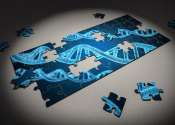A cancer-wide analysis finds cancer-wide targets for tumor reduction
Researchers at the Washington University School of Medicine, St. Louis, have discovered a potential new target for cancer immunotherapy in transposable elements (TEs), short segments of DNA that can move around the genome.








